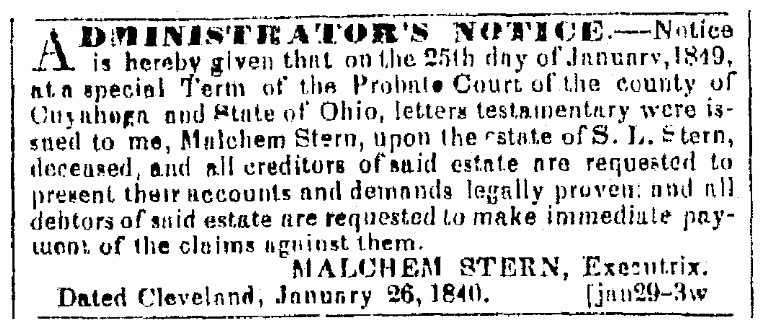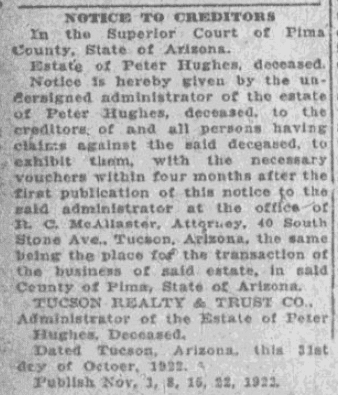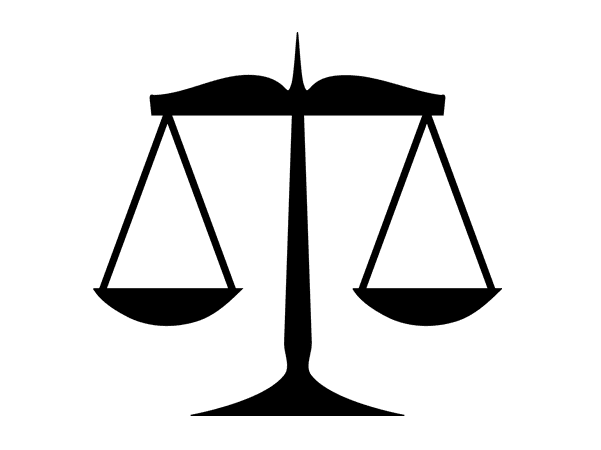Introduction: In this article, Gena Philibert-Ortega provides tips for researching court records and preparing to visit a courthouse to learn more about your ancestors. Gena is a genealogist and author of the book “From the Family Kitchen.”
Courthouses hold treasures for the genealogist – but visiting one can be intimidating if you’ve never researched court records in person. It’s important to learn all you can about what the courthouse holds, the procedure for obtaining records, and costs involved. The following are some tips to consider as you think about researching your family history in court records.
What Records Do Courthouses Hold?
Like the description “church records,” the term “court records” is too general. Court records cover a vastly diverse set of records that document our ancestors from America’s early history. “Court records” can include “probate, naturalization, divorce, debt, adoption, guardianship, licenses, appointment to public offices, taxes, civil lawsuits, property disputes, and crimes.”*
What records can you find at a courthouse? Well, the short answer is, “it depends.” Why? Every courthouse is different and the records they hold depend on the location, type of courthouse, and what they retain onsite. In the California county where I live the Superior Court holds records like probates, civil, and criminal cases, but if you want a divorce record you have to take a walk across the street to the Family Court. Some records have been digitized and are available online while others must be ordered and retrieved by court staff. In a neighboring county, some older records from the early 20th century and prior can be found at the county archive.
The FamilySearch Family History Research Wiki page on United States Court Records states that there are three main types of court cases that involve records you may be interested in:
- “ These cases involve violation of laws when an individual (but not society) is harmed, such as property damage, trespass, or libel. In these cases, one or more individuals file suit against other individuals to enforce private rights or to receive compensation for violation of rights.
- “ These involve disputes or arguments between individuals and do not involve violation of laws. In these cases, individuals petition the court to reach a fair decision for both parties. Examples of equity action are cases involving probates of estates and property rights. Today this function is mostly handled by civil courts.
- “ These involve the violation of laws in which society is or may be harmed, such as drunk driving, theft, or murder. In these cases, the state (or “the people”) file suit against the defendant. Serious crimes are felonies. Minor crimes are misdemeanors.”**
While court records are probably not the first records you should search when beginning a family history project, they are vital as you expand your search for your ancestor to probate records, wills, possible divorces and other cases.
Start Online
It probably won’t surprise you to learn that some records can be found online, either through a third-party website or from the courthouse itself. Always start your search using genealogy websites like FamilySearch. To find court records, see the FamilySearch Catalog and then conduct three Place searches: for the state, county, and town you’re researching. Subjects listed in the Catalog that have court records include Court Records and Probate Records.
Remember that court records may be held in places other than a courthouse. Depending on the type of records and court, you may find them archived at a regional branch of the National Archives and Records Administration (for federal court records), as well as state or county archives.
Don’t forget to also check the courthouse website. In some cases, you may find digitized records or even an index on the court’s website. It’s always best to ask another researcher or to email the court before visiting. You don’t want to visit a courthouse only to find out that records you need are stored offsite or require a search fee and a notification by mail.
Every court has difference rules/policies about records access. In some states, I’ve walked right into the courthouse and been allowed to research and copy whatever I need. In others, like where I live, the availability of records is limited to a paid search and waiting for a letter confirming that the records exist. Do your homework before you visit the courthouse to avoid disappointment.
Going to the Courthouse
If the courthouse does have the records you need, keep in mind a few things:
- Dress professionally when you go but consider refraining from wearing white or light colors. Bound court records can be heavy and dusty.
- Be respectful of the court staff time. They are there for current cases and may not have time to help you as much as you require.
- Be prepared to wait. I’ve waited close to two hours just to fill out a form. On the other hand, court record research takes time, so remember to allot yourself plenty of time for finding what you need.
- If you must pay for parking assume you’ll be there longer than you expect.
- You may be required to go through a metal detector and/or have your purse or other belongings searched. In some cases, a cell phone may not be allowed in the courthouse.
- You will most likely be required to pay a fee for copies. Depending on the amount of records you need, this fee may be substantial. You may want to inquire in advance whether credit cards are accepted, or bring enough cash.
- Consider talking to someone who has researched at that courthouse to provide information about what to expect.
Don’t Forget Newspapers Published Court Records & Legal Notices
Don’t forget the importance of newspaper research in learning more about your ancestor’s legal dealings. Various types of articles might exist including schedules for court hearings, individual articles about court cases, and the legal notices found at the back of a newspaper serving notice to creditors, or those that are party to a court case. Search an online collection of newspapers such as GenealogyBank’s Historical Newspaper Archives.

It was only after I found a legal notice about my ancestor in the newspapers that I was able to collect all of the relevant court records.

To Learn More
I recommend learning more about courthouse research by reading Genealogy at a Glance: Court Records Research and The Researcher’s Guide to American Genealogy.
————————-
* “United States Court Records,” FamilySearch Family History Research Wiki (https://www.familysearch.org/wiki/en/United_States_Court_Records: accessed 19 February 2018).
** Ibid.
Related Articles:


I found a reference to my maternal GPa Ed Hill in 20 Mar 1931 Hope Star, Hope, Ark., headlined: Business College Solicitor Sought by Memphis Authorities. Among other reasons Ed Hill was being sought for was bigamy (married to 3 women at the same time) & for selling a “batch of a Memphis business university contracts to prospective students.” He was referenced to being from Little Rock & having organized Hill’s Business College in Hope (1930). I found very little info, yet aliases i.e., George, Page & Ed. My Mother & Aunt & GMa are listed with Ed in 1930 Federal Census – Hot Springs, Garland, Ark. No actual birth certificates for either my Mother or Aunt can be found in the states they listed on Social Security. My GMa passed away in 1971 & both my Mother and Aunt in 2006. So the only clue about Ed is perhaps Memphis, Tennessee Court Records? My Aunt said that she was born in St. Louis, Missouri & my Mother said Macon, Ga. (although @ an early Social Security record is stated Atlanta, Ga.). Their birth years fluctuated between 1920 to 1923. At least I would like to locate birth records of both Aunt & Mother. Also, I am quite curious about who Ed Hill was & what Happened as a result of the bigamy charges & theft. Thanks For your suggestions.
Robyn,
Thanks for your question. I would definitely look for Memphis, Tennessee court records as well as court records in Hope, Arkansas. I would also do more newspaper research to see if there were any other articles about an arrest/trial. Searching digitized book websites would also be a good idea.
Did you search for marriage certificates or marriage licenses for his 3 wives? Also, I would search for more information about his “Business College” in newspapers, city directories, and local histories.
Regarding your mother and aunt’s birth. Did you inquire on the state or county level about their birth certificates? You may want to approach the county, if you haven’t already. It’s also possible that they had delayed birth certificates. So you could ask about those as well. Do you have your mother’s and aunt’s marriage license applications? That would also provide some clue about where they were born.
Good luck with your research!
Gena